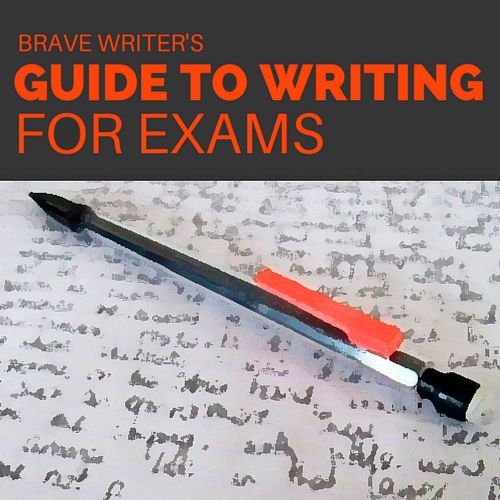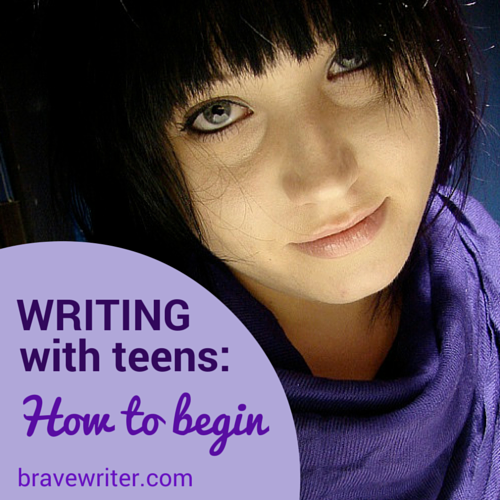Our kids don’t read academic writing consequently they aren’t absorbing the rhythms and organization that are the essence of academic writing forms. Additionally, as you’ve experienced with freewriting, kids tend to follow their thoughts where they lead. That means that their writing is often a rampage through a set of disorganized thoughts.
You’ll find some internal coherence within those freewrites (whole sections that are logically ordered or sequential) but you might also find just as often that the writer begins with the end and circles back to the beginning while getting to the middle of the experience or thought only to run out of steam.
The wonder of freewriting is that the writer is not required to get it all straight and organized before writing. That’s why freewriting is powerful in aiding blocked writers and skilled writers alike. Freewriting opens the flow of language and ideas so that they can get out of the head and onto the page. Once on the page, they can be sorted out and rearranged, modified and enhanced.
As I shared in the last blog, some of your kids are already following certain formats to a greater or lesser degree based on their attempts to mimic what they’ve read or heard. By the time they are high school aged, they will be ready to take the next step in ordering their writing. Academic writing formats are tricky and intimidating precisely because most of us never read an essay before we had to write one.
To your kids, essay writing is like learning a brand new sport while playing the game.
This experience of blind learning reminds me of my oldest son who took up lacrosse a couple years ago. The first game he ever watched was from on the field… as an attacker! He had to learn the game while he played it. Let me tell you. He had a hard time.
My son had never played a team sport in his life before lacrosse. He didn’t play recreational soccer or baseball or basketball. He had been an indoor rock climber and skateboarder. When he got to the lacrosse field, he was completely at sea! His first week of conditioning nearly killed him.
He wasn’t the only new guy on the team. However most of the other kids had played soccer or football. Even though they had to learn the game of lacrosse as they went, these guys had athletic team experience and were in good physical shape which in turn helped them adapt to a new set of rules and skills. They made quicker progress because team sports were familiar to them.
Essay writing is like learning a brand new sport while playing the game. There are steps to take that make the process less daunting and that will prepare your kids to be successful with less stress. The actual format itself is not difficult to teach or understand. Learning how to bend the essay to the writer’s purpose, to make the essay form work for the writer instead of against him is something all together different.
Kids who write well and freely will find that the essay is an unfamiliar format that uses the writing skills they’ve already developed, but in a new way.
If your kids have not developed their writing voices,
have not learned how to get their jumbled thoughts onto paper,
have not had the pleasure of rearranging their words so that they say just what the writer intends,
if they have not narrated the contents of the books they read,
the movies they view,
the games they play,
and have not enjoyed the sound of language,
the play of words,
the power of description
and vivid details,
and have never thought about why they think what they think
or how to get their point of view across so someone else understands and accepts it
learning to use the essay format will be unnecessarily torturous…
…a bit like the two week conditioning my son Noah went through after 15 years of never running farther than down the block.
We’ll talk more about the essay in the coming weeks. For now, I want you to chew on some of what I’ve shared here. Really take it in.
–julie
Image of father and son by OakleyOriginals (cc cropped and text added)






















